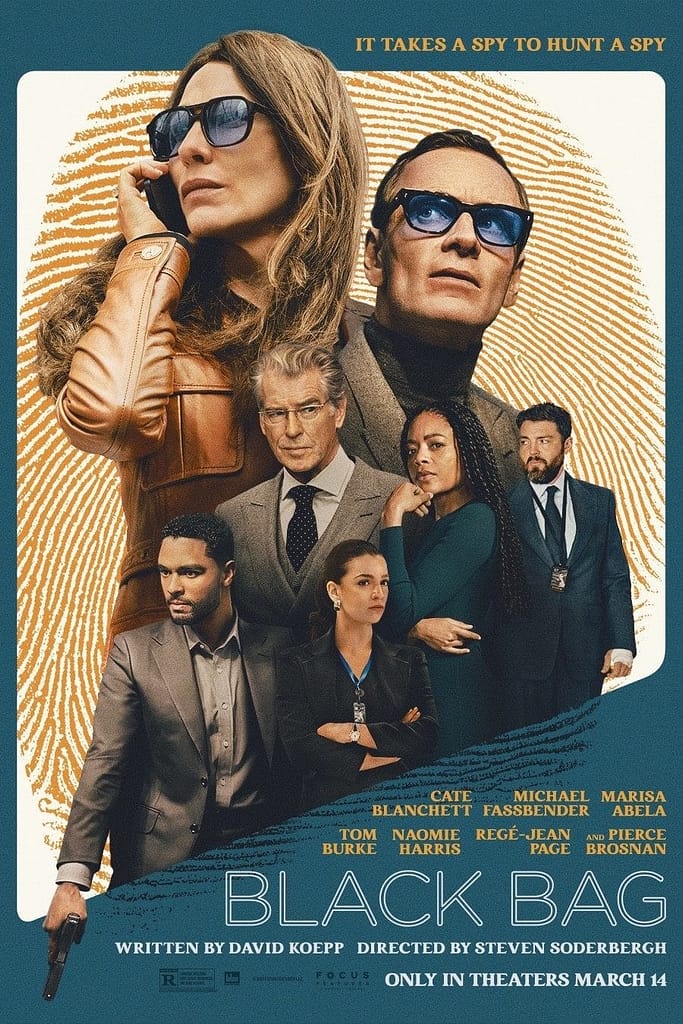My quick rating – 6.7/10. In Black Bag, director Steven Soderbergh delivers a sleek, moody espionage tale that strips away the explosive glamour of typical spy films in favor of a grounded, character-driven slow burn. This is not your typical popcorn thriller—there are no car chases, no gadgets, and no over-the-top villains. Instead, we’re treated to a refined and cerebral game of loyalty, deception, and trust, set in a world where whispers are more dangerous than bullets.
The story centers around Kathryn Woodhouse (Cate Blanchett), an intelligence agent who finds herself under suspicion of betraying her country. Her husband, played with icy precision by Michael Fassbender, is also a legendary agent and suddenly finds himself caught between his loyalty to his marriage and his duty to the nation. It’s a tense setup, and writer David Koepp makes the most of it, weaving in just enough misdirection and ambiguity to keep you guessing without tipping into absurdity.
The opening sequence, a seemingly mundane dinner party, is a masterclass in character setup. With just conversation and glances, Soderbergh introduces us to the key players, planting seeds that quietly grow into larger mysteries. It’s a small-scale scene, but it’s filled with tension that lingers throughout the film. This dinner isn’t just a gathering—it’s a battlefield.
Blanchett, as expected, is superb. She brings layers of vulnerability and quiet strength to Kathryn, making you question her motives at every turn. Fassbender matches her equally, delivering a performance that’s internalized, always letting us see the wheels turning behind his unreadable expressions. Their chemistry crackles, even in moments of stillness.
Soderbergh, no stranger to the espionage genre, shoots Black Bag with a loving nod to ’60s spy thrillers. There’s a stripped-down elegance to the cinematography—long takes, subdued lighting, and careful framing give the movie an old-school feel. The aesthetic is clean, moody, and deliberate, perfectly mirroring the methodical unraveling of the plot.
This is a film that prioritizes dialogue over action, and while that may deter viewers expecting shootouts or car chases, those willing to sit with the tension will be rewarded. The entire film could very well function as a stage play—so much of it rides on conversations, posture, silence, and subtext. Every word spoken (and not spoken) feels like a clue.
Black Bag doesn’t try to revolutionize the genre. Instead, it refines it. It’s compact, smart, and somber—telling a complete story in 93 minutes without overstaying its welcome. For some, its subdued tone might feel too quiet or too careful, but for others, it’s a refreshing return to spy films that value psychology over pyrotechnics. With powerhouse performances, precise direction, and a tightly wound script, this flick proves that sometimes, the loudest explosions are the ones inside a character’s mind.

Amazon along with these streamers are carrying this at theater pricing.
Log in to manage Simkl watchlist



